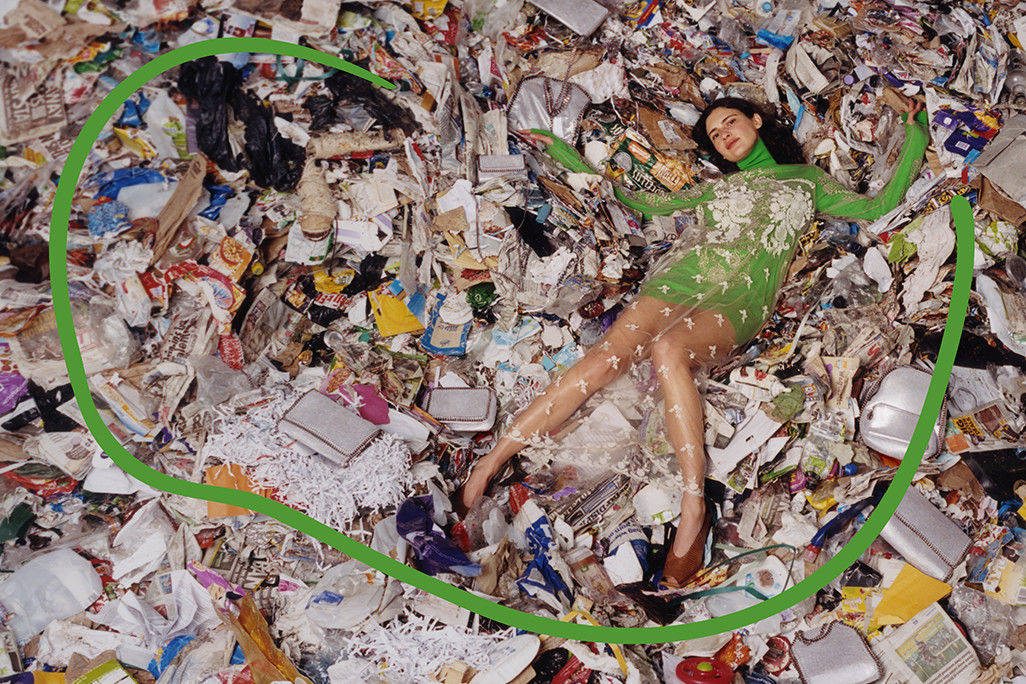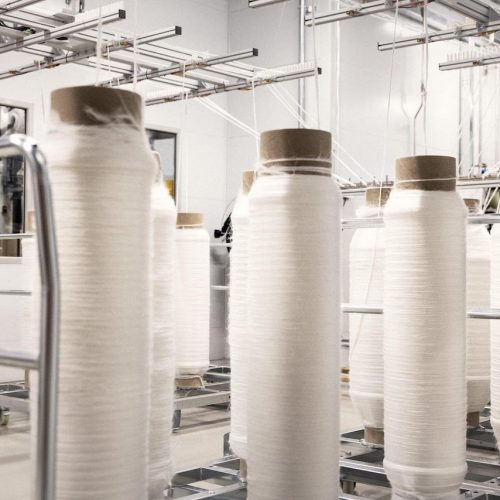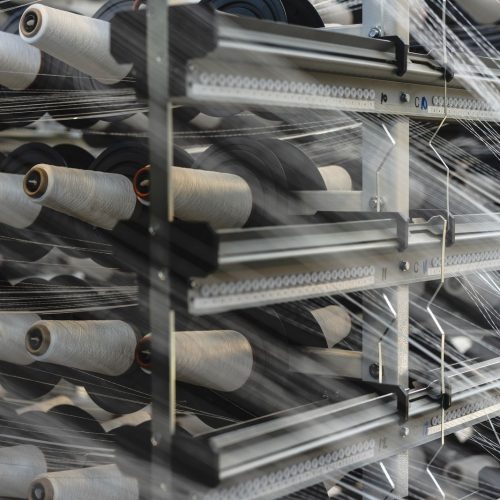Stella McCartney and Ellen MacArthur call: stop the waste
Today, Ellen MacArthur and Stella McCartney co-host the launch of the Ellen MacArthur Foundation’s new report “A new textiles economy: Redesigning fashion’s future” in London. The report, created by the Circular Fibres Initiative, calls for the fashion industry to adopt this new vision and create cross industry collaborations to achieve it.
Clothes are an everyday necessity, and for many an important expression of individuality. Yet the industry’s current take-make-dispose model is the root cause of many environmental impacts and substantial economic value loss.
As the Ellen MacArthur Foundation’s report “A new textiles economy: Redesigning fashion’s future” shows, every second, the equivalent of one garbage truck of textiles is landfilled or burned. An estimated USD 500 billion value is lost every year due to clothing that’s barely worn and rarely recycled. If nothing changes, by 2050 the fashion industry will use up a quarter of the world’s carbon budget. As well as being wasteful, the industry is polluting: clothes release half a million tonnes of microfibres into the ocean every year, equivalent to more than 50 billion plastic bottles. Microfibres are likely impossible to clean up and can enter food chains. So, now, and not tomorrow, it is time for clothes to be designed differently, worn for longer and recycled as much as possible.
“The Ellen MacArthur Foundation’s report ‘A new textiles economy: Redesigning fashion’s future’ presents an ambitious vision of a new system, based on circular economy principles, that offers benefits to the economy, society, and the environment. We need the whole industry to rally behind it.” – Ellen MacArthur.
The report presents a positive new vision for a system that works, and summons the creative power of the fashion industry to build it. In a new textiles economy clothes would be designed to last longer, be worn more and be easily rented or resold and recycled, and would not release toxins or pollution. Exploring new materials, pioneering business models, harnessing the power of design, and finding ways to scale better technologies and solutions are all needed to create a new textiles economy.

© Stella McCartney Campaign AW 2017.
Sad information to have in mind
Just to let you know, currently, customers purchase more clothing than they will use and are quick to throw garments away after use. Worldwide, clothing utilisation – the average number of times a garment is worn before it ceases to be used – has decreased by 36% compared to 15 years ago.
What more? Oh, yes: “Less than 1% of material used to produce clothing is recycled into new clothing, representing a loss of more than USD 100 billion worth of materials each year”.
Another sad news: “The textiles industry relies mostly on non-renewable resources – 98 million tonnes in total per year – including oil to produce synthetic fibres, fertilisers to grow cotton, and chemicals to produce, dye, and nish fibres and textiles. Textiles production (including cotton farming) also uses around 93 billion cubic metres of water annually, contributing to problems in some water-scarce regions”.
More information: “Of the total fibre input used for clothing, 87% is landfilled or incinerated, representing a lost opportunity of more than USD 100 billion annually.The number of plastic microfibres entering the ocean between 2015 and 2050 could accumulate to an excess of 22 million tonnes. Material and water usage is set to become increasingly problematic”.

© Stella McCartney Campaign AW 2017.
Calling on the entire fashion industry
Ellen MacArthur Foundation is calling on the entire industry to rally behind this new vision and to launch a new wave of cross-industry collaboration and innovation to achieve it. By presenting a clear understanding of the challenges faced and the economic opportunities, as well as practical levers for business, innovation and policy action, the New Textiles Economy report is a vital step in an industry-led approach to develop a global textiles system fit for the 21st Century.
“The report presents a roadmap for us to create better businesses and a better environment. It opens up the conversation that will allow us to find a way to work together to better our industry, for the future of fashion and for the future of the planet.”- Stella McCartney.




